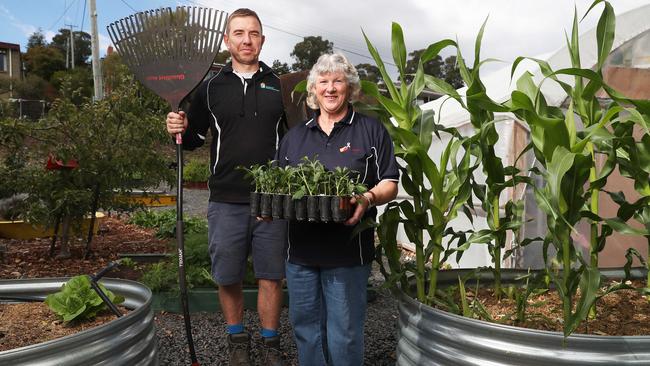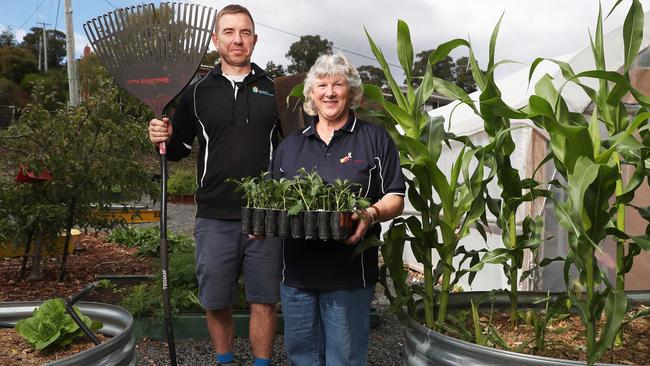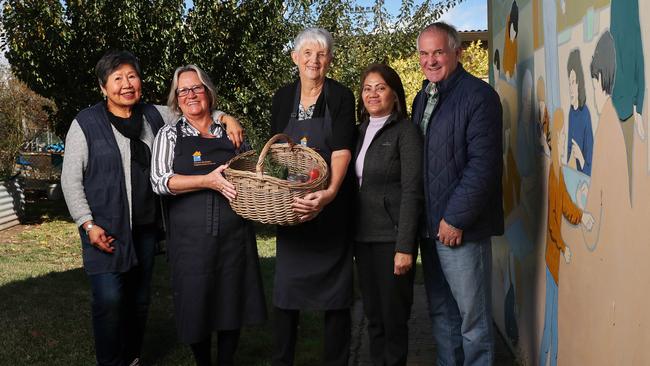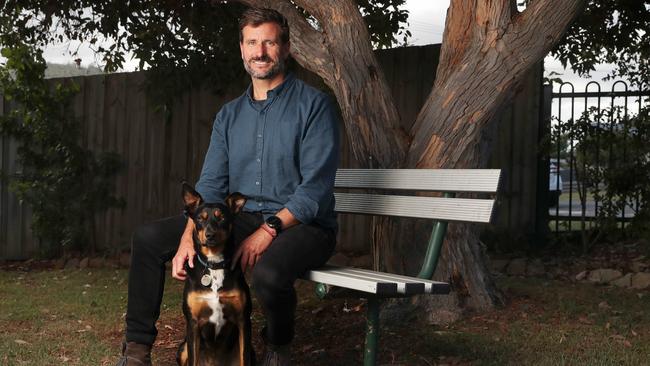Programs nurture sense of community while helping to feed those most in need
As the rising cost of living continues to hit the back pocket of families across the country – Tasmania’s community gardens are flourishing. DETAILS >

Tasmania
Don't miss out on the headlines from Tasmania. Followed categories will be added to My News.
With many Tasmanians struggling to afford fresh fruit and vegetables, community gardens across the state are flourishing.
As well as providing for people in need, the humble gardens give others a chance to overcome loneliness and improve their mental health.
Luke Horne, the head gardener at the West Moonah Community Garden which began 15 years ago, says it plays an important role in the community and as part of the Neighbourhood House.
While some people pay for their own plots of land, “100 per cent of the produce grown on behalf of the Neighbourhood House is given to the community that are in need for free”.
“Over the last two weeks we have assisted roughly about 70 people.

“I’m seeing regular plot holders in the garden more often which is good. In the past two months we have had four new plot holders sign up,” he said.
“With the cost of green vegetables at present it makes sense to grow your own. Even if you have limited space you can always start growing.”
After Easter, a pantry will be set up to service the community after hours.
The state government recently announced more than $90,000 in grants to 21 Neighbourhood Houses to establish or enhance their community gardens.
Liberal member for Franklin Dean Young said the grants would help Neighbourhood Houses purchase equipment so their community gardens can flourish.
“With cost-of-living pressures increasing, community gardens can play an important role in providing fresh, nutritious food to Tasmanians who need help,” he said.
Mr Horne says the grant will be used for a course that allows people to learn how to grow vegetables to create a meal.
“Once the veggies are grown we will have a cook show the course attendees how to use their vegetables to make a hearty, healthy meal.
“We hope to also work with Wellways Australia to incorporate a stigma and stress session that will be beneficial to the attendees as well.”

Ben Cooper says since becoming manager of the Warrane Mornington Neighbourhood House 18 months ago he has seen “a significant increase in the need for support and social connection”.
He said much work has been done by about 30 volunteers to landscape the garden, install raised garden beds and fruit tree orchards.
“It has since evolved into an established community space and productive garden offering community members opportunities to connect, participate and learn more about edible gardening.
“It provides a shared gathering space, consistent opportunities for social connection through weekly activity and occasional events, as well as food harvesting.
“We see the community garden’s importance only increasing in supporting food security, healthy eating and community connection.”
Mr Cooper said demand for free, fresh produce was growing.
“The rising cost of living has seen significant impact across our community and increased engagement in both the Neighbourhood House and Community Garden.

“There has been a significant increase in the demand for fresh produce and all other food provision.
“Many are seeking opportunities to connect as social isolation impacts local community members.
“This is reflected in rising participation rates and individuals reporting significant duress due to loneliness and the stress of coping with increased cost of living and inability to pay day to day expenses.
“The benefits of both sites and activities to our staff, volunteers, other agencies and community participants are significant and valuable.”
Deloraine House Inc manager Debbie Smith is enthusiastic about her three community gardens at Deloraine, Mole Creek and Meander.
“We say ‘take what you need and give what you can’,” she said.
The Deloraine garden has up to 15 volunteers and produce is given away every day with some locals also donating surplus fruit and vegetables.
“We fill the pantry every day,” Ms Smith said.
“It is very therapeutic for many people to work in community gardens because they can get outside and work on their own or with others.”





